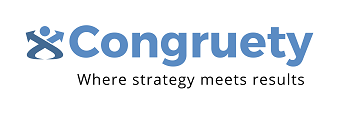
Start Your Team Workshop Off Right
How can you make your team more effective? Often, it means leaving the office and bringing people together. By being away from the demands of work (i.e., deadlines, technology and meetings), your team can examine the challenges that they face and create joint solutions. This protected time also gives you an opportunity to remind everyone what are the attributes of an effective team.
If you choose to take your team offsite, follow these guidelines to ensure your time together is successful.
- Define the meaning of a team. Start your offsite meeting by focusing on the key characteristics of effective teams. Ask attendees, “What is a team?” Solicit feedback and share the following definition of a team.
“A team is a small number of people with complementary skills who are committed to a common purpose, performance goals, and approach for which they are mutually accountable.” (Katzenbach and Smith, 1993)
- Identify Characteristics of Effective Teams. Many people don’t know what makes an effective team. Solicit more discussion by asking the group:
- What skills, qualities, knowledge, and experience do you bring to the team?
- What do you value most about being a part of this team?
- What are our strengths as a team?
- What are the key qualities of a high performing team?
- Guide the conversation to identify important elements of high performing teams. Remember to emphasize the following:
- Clear purpose or statement that inspires confidence and motivates commitment;
- Shared involvement that each person works to their full potential;
- Defined roles and responsibilities so each team member knows what they and others need to accomplish;
- Trust to be able to count and rely on others;
- Accountability and support to ensure the team maintains high performance;
- Recognition of success by the team (and individual) so everyone works together;
- Open communication and regular feedback to keep everyone informed and clear how to improve performance;
- Process perspective to be aware of how the team is functioning; and
- Inclusive decisions to share ideas and suggestions.
- Compare the two lists. What do they have in common? What’s missing?
- Review and establish next steps. Leverage the conversation to identify what the team (and individuals) should continue to do, stop doing, and start doing.
Like Michael Jordan, the great basketball player, once said, “Talent wins games, but teamwork and intelligence win championships.”
